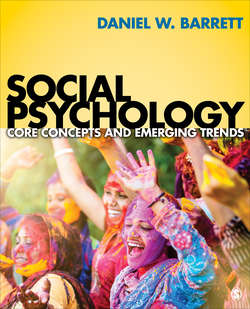Читать книгу Social Psychology - Daniel W. Barrett - Страница 29
На сайте Литреса книга снята с продажи.
Rationality
ОглавлениеWe are often encouraged by friends, family, and even professors to be “objective” and not allow personal feelings and motivations to interfere with judgments and decisions. Put aside your biases and look at this issue from the perspective of a disinterested third party! Often we try, but can we really do it? Do you think that it is possible to truly separate our thinking from our feeling?
Social psychologists used to assume that we could engage in rational, dispassionate, unbiased thinking—what we call “cold cognition”—but research in the past couple of decades has undermined that assumption (Gladwin & Figner, 2015; Kahneman, 2011). We now recognize that cognition is very often “hot,” which is to say that it is affected by our emotions and motivations. This is the case even when we try to be unbiased. For example, in one study participants were more likely to judge information as valid when they were in a good mood versus a neutral mood (Garcia-Marques, Mackie, Claypool, & Garcia-Marques, 2004). This demonstrates how feeling can alter thinking. Have you ever wondered whether someone who claims to be unbiased is letting his feelings affect his judgment without realizing it?
